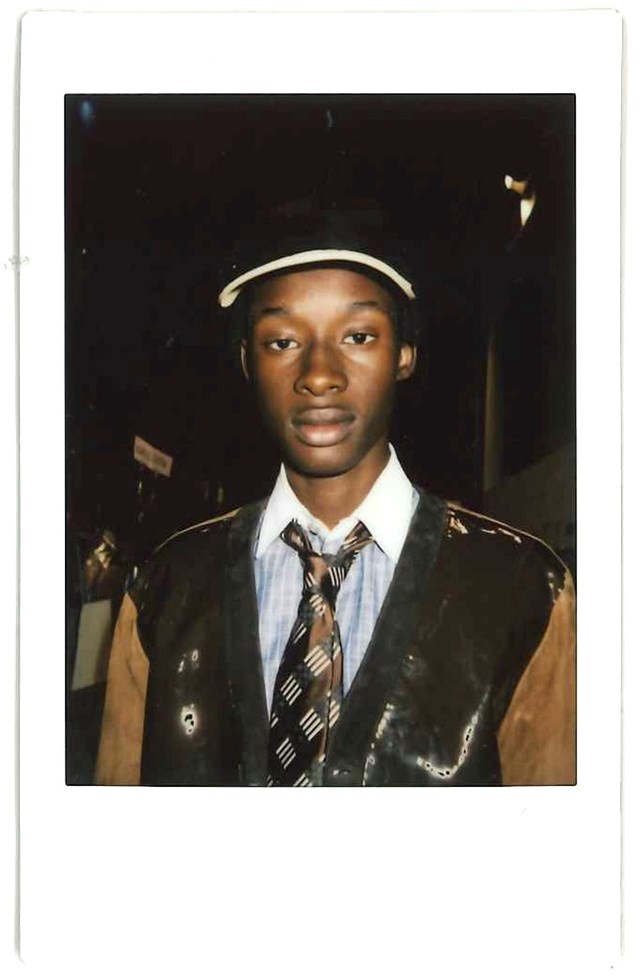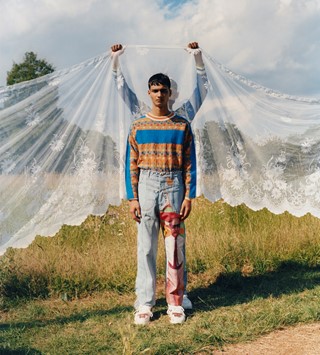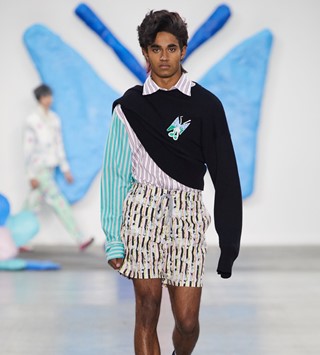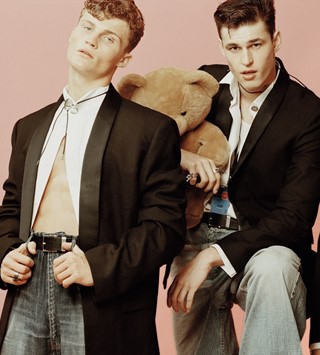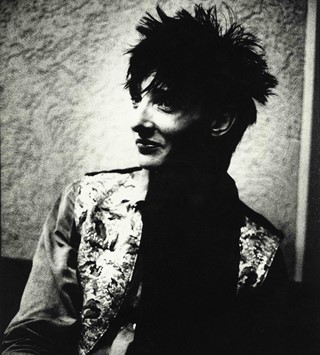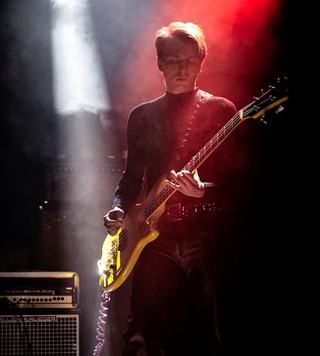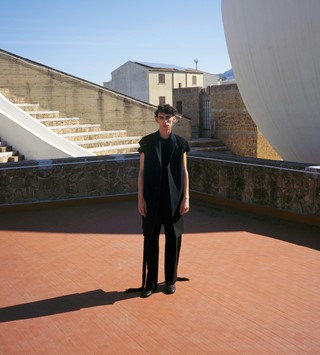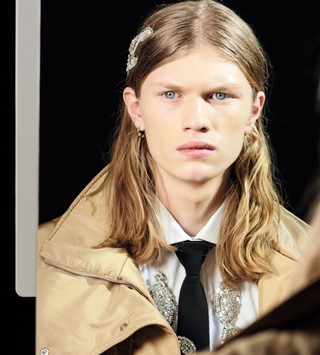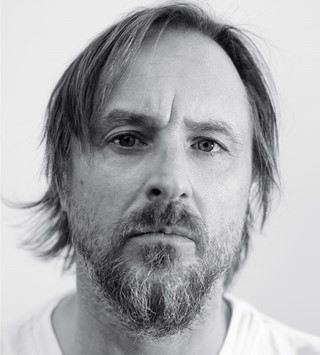Taking inspiration from Andy Warhol and Patrick Bateman, Silvia Fendi puts her spin on workplace attire
- TextTed Stansfield
“Now you have young kids who are the heads of start-ups and become multi-billionaires in just a few years, so attitudes are changing.” Silvia Fendi is talking about workplace attire which, over the past decade has undergone an evolution, or rather a revolution. The rich and powerful are no longer working in offices, clad in suits, but working behind a computer from the comfort of their homes or nearby cafés, wearing (as the designer noted matter-of-factly) “slippers and shorts”. This season, Signora Fendi had spent some time thinking about this phenomenon and responded with this collection.
Transforming the house’s headquarters on via Andrea Solari into a swish, marble-lined office space, models emerged from faux lift doors – to the sound of Lost in Music by Sister Sledge – wearing Fendi’s spin on workwear. Tailoring was rendered more casual and casualwear more luxurious; pieces were branded with Fendi’s double-F logo and illustrations by artist and Lucian Freud muse Sue Tilley. Describing her approach, Fendi said she had been taking old-fashioned items of clothing - such as suits, shirts and ties - and making them more relaxed, reflecting how men actually dress for work today.
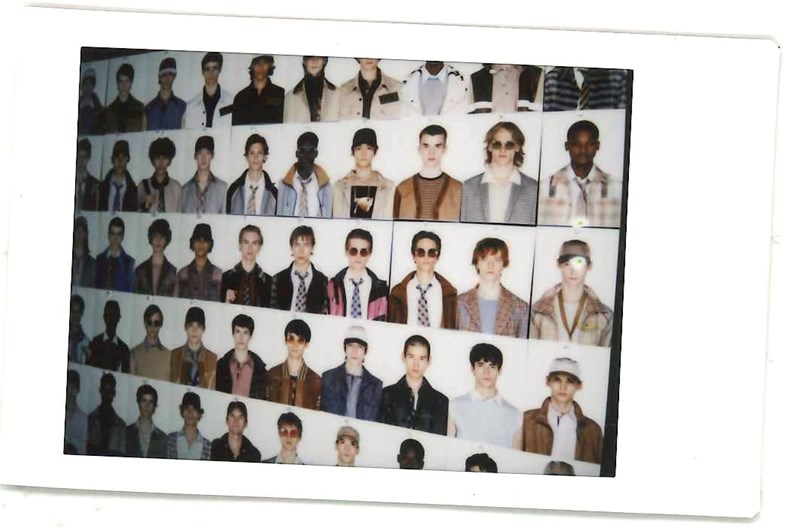
Pictures pinned to the moodboard backstage indicated that she had been looking at the way Andy Warhol (ironically) wore suits for inspiration and how Patrick Bateman (Christian Bale) wore suspenders in American Psycho. The moodboard also featured photographs from Martin Parr’s 1999 series, Common Sense, which captures consumerist culture and everyday life.
The notion of the everyday and of humanity had been playing heavily on Fendi’s mind this season. Tilley’s illustrations-turned-patches included motifs of everyday ephemera such as bananas, corkscrews, retro-looking desk lamps and cups of tea. Explaining these designs, Fendi said she had been thinking about the role of people in the workplace and that, despite technological advancements, we’ll always be necessary. “There's this worry about machines and technologies and androids that are going to take work,” she mused. “But I think the difference is that we have fantasy, we dream. We – human beings – are not replaceable.”
